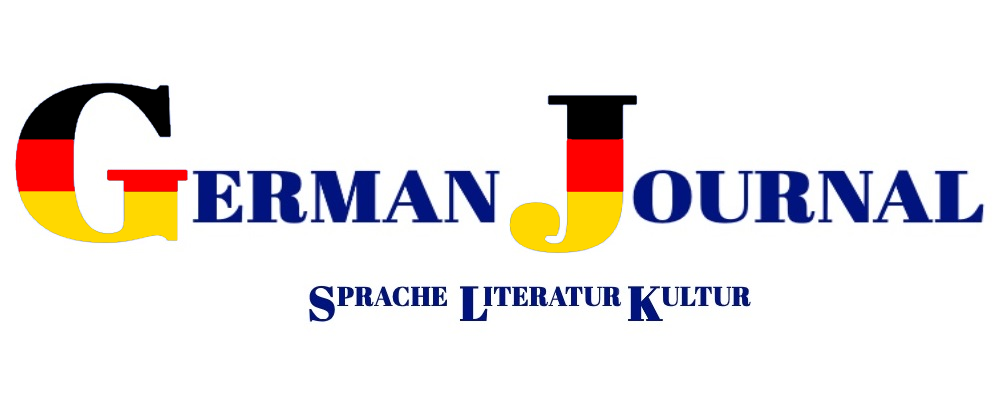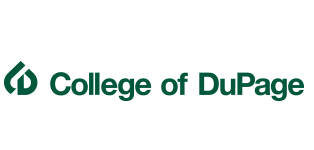
Policies
Contents
- Wer Kann Einreichen?
- Who Can Submit?
- Allgemeine Einreichungsregeln
- General Submission Rules
- Formatting Requirements
- Rechte für Autoren und DigitalCommons@COD
- Rights for Authors and DigitalCommons@COD
Wer Kann Einreichen?
Jede*r kann einen Originalartikel einreichen, der für die Veröffentlichung in der Zeitschrift German Journal Sprache Literatur Kultur in Betracht gezogen werden soll, sofern er/sie das Urheberrecht an dem eingereichten Werk besitzt oder vom/von der Urheberrechtsinhaber*in oder -inhabern zur Einreichung des Artikels autorisiert ist. Autoren sind die ursprünglichen Inhaber der Urheberrechte an ihren Werken (eine Ausnahme in der nicht-akademischen Welt kann bestehen, wenn die Autoren als Beschäftigungsbedingung der Übertragung des Urheberrechts an ihren Arbeitgeber zugestimmt haben).
Who Can Submit?
Anyone may submit an original article to be considered for publication in German Journal Sprache Literatur Kultur provided he or she owns the copyright to the work being submitted or is authorized by the copyright owner or owners to submit the article. Authors are the initial owners of the copyrights to their works (an exception in the non-academic world to this might exist if the authors have, as a condition of employment, agreed to transfer copyright to their employer).
Allgemeine Einreichungsregeln
Eingereichte Artikel können weder in einer Archivzeitschrift oder einem Buch (in gedruckter oder elektronischer Form) veröffentlicht worden sein. Bitte beachten Sie: "Veröffentlichung" in einer Working-Paper-Serie ist keine vorherige Veröffentlichung. Mit der Übermittlung von Material an das German Journal Sprache Literatur Kultur legt der/dieAutor*in außerdem fest, dass das Material derzeit nicht in einer anderen Zeitschrift (elektronisch oder in gedruckter Form) geprüft wird, und dass er/sie das Material nicht bei einer anderen Zeitschrift (in elektronischer oder in gedruckter Form) bis zum Abschluss des redaktionellen Entscheidungsprozesses in der Zeitschrift German Journal Sprache Literatur Kultur einreichen wird. Wenn Sie Bedenken hinsichtlich der Einreichungsbedingungen für German Journal Sprache Literatur Kultur haben, wenden Sie sich bitte an die Redaktion.
General Submission Rules
Submitted articles cannot have been previously published, nor be forthcoming in an archival journal or book (print or electronic). Please note: "publication" in a working-paper series does not constitute prior publication. In addition, by submitting material to German Journal Sprache Literatur Kultur, the author is stipulating that the material is not currently under review at another journal (electronic or print) and that he or she will not submit the material to another journal (electronic or print) until the completion of the editorial decision process at German Journal Sprache Literatur Kultur. If you have concerns about the submission terms for German Journal Sprache Literatur Kultur, please contact the editors.
Formatierungsanforderungen
- Bitte schreiben Sie Ihre persönlichen Daten (Namen, E-Mail Adresse und Telefonnummer) sowie den Titel des Manuskripts und etwaige Zugehörigkeiten auf ein extra Deckblatt, um den “blind review” Vorgang zu garantieren.
- Bitte schreiben Sie das Manuskript in Microsoft Word; Schriftart: Times New Roman; Schriftgröße 12, nicht fett.
- Der Titel des Manuskripts soll zentriert vor dem Haupttext stehen; Schriftgröße 14, fett. Bitte schreiben Sie nur das erste Wort (und eventuelle Worte, die grammatikalisch groß geschrieben werden müssen) im Titel groß.
- Das Abstrakt soll 250 Worte lang sein; Schriftgröße 12, nicht fett. Das Abstrakt soll direkt nach dem Titel, aber vor dem Haupttext stehen.
- Überschriften bitte nummerieren (d.h. 1., 2., etc.); Schriftgröße 12, fett.
- Zwischenüberschriften bitte nummerieren (d.h. 1.1., 2.2., etc.); Schriftgröße 12, fett und kursiv.
- Das Manuskript bitte im doppelten Zeilenabstand schreiben, mit 2,54 cm Rändern.
- Bitte fügen Sie keine Seitenzahlen, Kopf- oder Fußzeilen ein.
- Bitte nutzen Sie keine Endnoten sondern Fußnoten
- Anhänge sollen nach dem Haupttext stehen (z.B. Anhang A, Anhang B, Anhang C, etc.). Die Überschriften der Anhänge sollen in der oberen linken Ecke stehen; Schriftgröße 12, fett; Schriftgröße des Anhangs soll 10, nicht fett, sein.
- Zitate müssen dem APA style (für Sprach- und Linguistikartikel) und MLA style (für Literatur- und Kulturartikel) folgen.
- Literatur- und Quellenangaben sollen am Ende des Manuskripts stehen und müssen ebenso dem APA (für Sprach- und Linguistikartikel) oder MLA (für Literatur- und Kulturartikel) style folgen.
- Tabellen, Bilder und Grafiken sollen im Textoriginal platziert sein; Schriftgröße 10, nicht fett. Überschriften für Tabellen, Bilder und Grafiken sollen Schriftgröße 10, fett, sein. Tabellen, Bilder und Grafiken sollen generell dem APA (für Sprach- und Linguistikartikel) und MLA (für Literatur- und Kulturartikel) style folgen.
- Tabellen, Bilder und Grafiken sollen im Textoriginal platziert sein; Schriftgröße 10, nicht fett. Überschriften für Tabellen, Bilder und Grafiken sollen Schriftgröße 10, fett, sein. Tabellen, Bilder und Grafiken sollen generell dem APA (für Sprach- und Linguistikartikel) und MLA (für Literatur- und Kulturartikel) style folgen.
- Publication Manual of the American Psychological Association (APA), 6th edition, Print ISBN: 9781433805592
- Publication Manual of the Modern Language Association (MLA), 8th edition, Print ISBN: 9781603292627
Formatting Requirements
- For the purposes of the blind review process, type the title of the manuscript, authors’ names, affiliations, and contact information (e-mail address and phone number) onto a separate cover sheet.
- Type your manuscripts in Microsoft Word; Font Times New Roman; Font size 12 and non-bold.
- The title of the manuscript must be positioned in the center before the main text body; font size 14 and bold. Do not capitalize every word in the title. Only the first word in the title should be capitalized.
- The abstract should be 250 words; Font size 12 and non-bold. The abstract must be positioned immediately after the title and before the main text body.
- Headings must be numbered (e.g. 1., 2., etc.); font size 12 and bold.
- Subheadings must be numbered (e.g. 1.1., 1.1.2., etc.); font size 12 and bold and italic.
- The manuscript must be double-spaced and the margins must be set at 1 inch.
- Do not include page numbers in the manuscript.
- Do not use headers or footers.
- Use footnotes. Do not use endnotes.
- Appendices must follow the main text (e.g. Appendix A, Appendix B, Appendix C, etc.). Captions for the appendices must be positioned in the upper left corner; font size 12 and bold; font size for the appendices 10 and non-bold.
- Within text citations must adhere to the APA style for language/ linguistics papers and MLA style for culture/ literature papers.
- References must be included at the end of the manuscript and must adhere to the APA style for language/ linguistics papers and MLA style for culture/ literature papers.
- Tables, pictures, or graphs must be inserted in their original places within the text; font size 10 and non-bold. Captions for the tables, pictures or graphs must be font size 10 and bold. Tables, pictures and graphs must adhere to the APA (language/ linguistics) or MLA (culture/ literature) style respectively.
- Authors must check their manuscripts for accuracy of language, citations and references before submission. Manuscripts not following the German Journal style will be rejected automatically
- Publication Manual of the American Psychological Association (APA), 6th edition, Print ISBN: 9781433805592
- Publication Manual of the Modern Language Association (MLA), 8th edition, Print ISBN: 9781603292627
Rechte für Autoren und DigitalCommons@COD
Wie in unserem Einreichungsvertrag (der Einreichungsvereinbarung) näher beschrieben ist, übertragen die Autoren DigitalCommons@COD im Hinblick auf die Veröffentlichung des Artikels das gesamte Urheberrecht an dem Artikel, vorbehaltlich der nachfolgend beschriebenen umfangreichen Ausnahmen für den persönlichen Gebrauch.
Rights for Authors and DigitalCommons@COD
As further described in our submission agreement (the Submission Agreement), in consideration for publication of the article, the authors assign to DigitalCommons@COD all copyright in the article, subject to the expansive personal--use exceptions described below.
Attribution- und Nutzungsrichtlinien
Die Vervielfältigung, Veröffentlichung, Übermittlung oder sonstige Verbreitung oder Verwendung des Artikels oder jeglichen Materials darin in einem beliebigen Medium, das durch eine Ausnahmeregelung für den persönlichen Gebrauch oder durch eine schriftliche Vereinbarung von DigitalCommons@COD zulässig ist, erfordert die Anerkennung von DigitalCommons@COD als Copyright-Inhaber (z.B. DigitalCommons@COD © 2023).
Attribution and Usage Policies
Reproduction, posting, transmission or other distribution or use of the article or any material therein, in any medium as permitted by a personal-use exemption or by written agreement of DigitalCommons@COD, requires credit to DigitalCommons@COD as copyright holder (e.g., DigitalCommons@COD © 2023).
Ausnahmen für den persönlichen Gebrauch
Die folgenden Verwendungen sind für den/die Autor*in/die Autoren immer zulässig und erfordern keine weitere Genehmigung von DigitalCommons@COD, sofern der/die Autor*in das Format oder den Inhalt der Artikel, einschließlich der Urheberrechtsbenachrichtigung, nicht ändert:
- Speicherung und Sicherung des Artikels auf den Computern des Autors und auf den digitalen Medien (z. B. Disketten, Backup-Server, Zip-Disketten usw.), sofern der auf diesen Computern und Medien gespeicherte Artikel anderen Personen als dem/der Autor*in/den Autoren nicht ohne weiteres zugänglich ist ;
- Veröffentlichung des Artikels auf der persönlichen Website des Autors (der Autoren), sofern die Website nicht kommerziell ist;
- Veröffentlichung des Artikels im Internet als Teil eines nichtkommerziellen Open-Access-Institutions-Repository oder einer anderen nichtkommerziellen Open-Access-Veröffentlichungsseite, die mit dem Arbeitsplatz des Autors (der Autoren) verbunden ist (z. B. Professor für Phrenologie an der University of South Carolina, North Dakota, kann ihren Artikel in der Online-Publikationsreihe "Department of Phrenology" der University of Southern North Dakota veröffentlichen lassen; und Veröffentlichung des Artikels auf einer nichtkommerziellen Kurs-Website für einen Kurs, der vom/von der Autor*in an der Universität oder der Hochschule unterrichtet wird, in der der/die Autor*in beschäftigt ist.
- Personen, die eine Ausnahme suchen, oder Fragen zur Verwendung haben, sollten sich an die Redaktion wenden.
Personal-use Exceptions
The following uses are always permitted to the author(s) and do not require further permission from DigitalCommons@COD provided the author does not alter the format or content of the articles, including the copyright notification:
- Storage and back-up of the article on the author's computer(s) and digital media (e.g., diskettes, back-up servers, Zip disks, etc.), provided that the article stored on these computers and media is not readily accessible by persons other than the author(s);
- Posting of the article on the author(s) personal website, provided that the website is non-commercial;
- Posting of the article on the internet as part of a non-commercial open access institutional repository or other non-commercial open access publication site affiliated with the author(s)'s place of employment (e.g., a Phrenology professor at the University of Southern North Dakota can have her article appear in the University of Southern North Dakota's Department of Phrenology online publication series); and
- Posting of the article on a non-commercial course website for a course being taught by the author at the university or college employing the author.
- People seeking an exception, or who have questions about use, should contact the editors.
Allgemeine Nutzungsbedingungen
Benutzer der DigitalCommons@COD Website und / oder Software erklären sich damit einverstanden, denDigitalCommons@COD-Dienst oder die Software in keiner Weise zu missbrauchen. Das Versäumnis von DigitalCommons@COD, Rechte oder Bestimmungen in den Richtlinien oder im Einreichungsvertrag auszuüben oder durchzusetzen, stellt keinen Verzicht auf dieses Recht oder diese Bestimmung dar. Sollte sich herausstellen, dass eine Bestimmung des Übermittlungsvertrags oder dieser Richtlinien ungültig ist, vereinbaren die Parteien dennoch, dass das Gericht sich bemühen sollte, die in der Bestimmung enthaltenen Absichten der Parteien und die anderen Bestimmungen des Einreichungsvertrags und dieser Richtlinien umzusetzen bleiben in voller Kraft und Wirkung. Diese Richtlinien und der Einreichungsvertrag bilden die gesamte Vereinbarung zwischen DigitalCommons@COD und dem/der Autor*in / den Autoren bezüglich der Einreichung des Artikels.
General Terms and Conditions of Use
Users of the DigitalCommons@COD website and/or software agree not to misuse the DigitalCommons@COD service or software in any way.
The failure of DigitalCommons@COD to exercise or enforce any right or provision in the policies or the Submission Agreement does not constitute a waiver of such right or provision. If any term of the Submission Agreement or these policies is found to be invalid, the parties nevertheless agree that the court should endeavor to give effect to the parties' intentions as reflected in the provision, and the other provisions of the Submission Agreement and these policies remain in full force and effect. These policies and the Submission Agreement constitute the entire agreement between DigitalCommons@COD and the Author(s) regarding submission of the Article.

